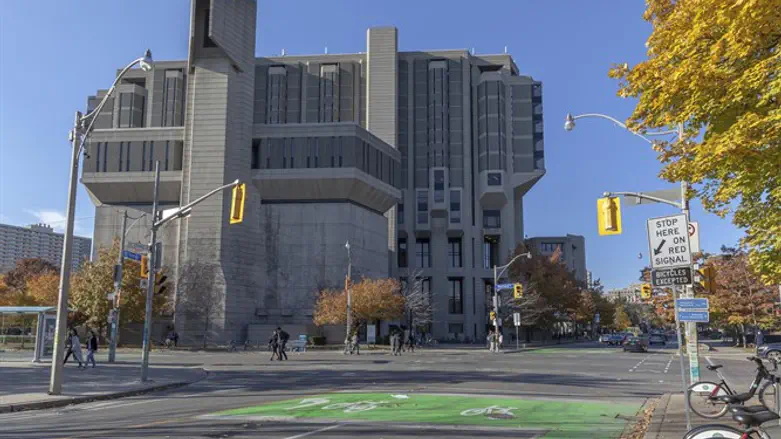
B’nai Brith Canada has sent a letter to the federal government requesting that a work permit be denied for a controversial academic linked to “a variety of extreme anti-Zionist organizations” at the center of a heated dispute over whether the University of Toronto’s Law School acted appropriately last year when her hiring – recommended by a search committee – did not take place.
The letter written by B’nai Brith Senior Legal Counsel David Mattas, addressed to the Minister of Immigration, Refugees and Citizenship of Canada and the Minister of Employment, Workforce Development and Disability Inclusion, called on the ministries to not approve a work permit for Valentina Azarova, if she submits an application to do so in order to serve as the director of the University of Toronto (U of T) law school’s International Human Rights Program (IHRP).
Last year, Azarova was recommended by a search committee for the position. She was not hired due to the availability of qualified Canadians who applied for the position, making her not eligible for the permit.
However, several groups went on to accuse the university of impropriety in the matter, alleging U of T caved in to outside pressure, including one academic who alleged that an “entitled powerful Zionist minority” was behind the decision – an accusation B’nai Brith termed an “anti-Semitic fantasy developed around this refusal to hire.”
An investigation later cleared the U of T law school of any wrong actions. The report found that allegations that a Jewish judge inappropriately influenced the decision by the law school not to hire the anti-Israel academic were unfounded. The report concluded Azarova was not hired for entirely unrelated reasons.
B’nai Brith noted that the law school has re-opened the search for the director of the IHRP.
“By quietly altering the job description it has launched a tainted and distorted search process that is weighted against qualified Canadian candidates,” wrote Mattas. “The recent Law Faculty announcement states ‘The position remains the same as last year.’ Yet, it does not remain the same. Last year a license to practice in Ontario or another jurisdiction was required. This year it is not.”
He added: “It has been reported that the U of T Faculty of Law Dean has reached out to Azarova to let her know the application is open, but there is no public indication that the U of T has similarly reached out to Canadians who have previously applied for the position.”
B’nai Brith CEO MIchael Mostyn called on the Canadian government to deny Azarova a work permit should she be offered the U of T position.
“Our federal government simply cannot aid and abet the University of Toronto in a distorted and unfair hiring process that unfairly discriminates against Canadian applicants,” said Mostyn.
Mattas wrote that Azarova’s primary research during her career has focused on a “delegitimization effort” against Israel and that “this history includes opposition to academic freedom for those opposed to her views.”
The Letter went on to say that in B’nai Brith’s view, “hiring Ms. Azarova for the position of director of the International Human Rights Program of the Faculty of Law of the University of Toronto would cause a substantial harm to Canada by causing a substantial harm to the University of Toronto” and that “the search process this time round is as tainted as the first, albeit in a different way.”
